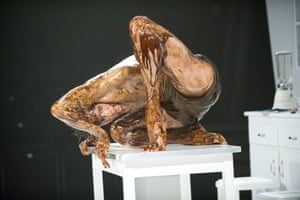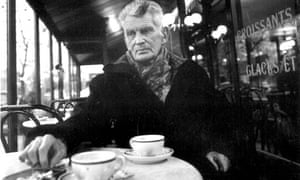NEW IB ENGLISH LITERATURE COURSE BD SOMANI INTERNATIONAL SCHOOL MUMBAI. EMAIL andrew.callahan@bdsint.org (Please note this site uses Google cookies in compliance with EU Law. By using this site you accept that cookies are used here.)
Wednesday, 31 August 2016
Tuesday, 30 August 2016
WILFRED OWEN "My subject is war and the pity of war"

Wilfred Owen (1893-1918) is widely recognised as one of the greatest voices of the First World War. His self-appointed task was to speak for the men in his care, to show the 'Pity of War'.
Owen's enduring and influential poetry is evidence of his bleak realism, his energy and indignation, his compassion and his great technical skill.
The Wilfred Owen Association was formed in 1989 to commemorate Wilfred Owen's life and work. CLICK HERE FOR LINK http://www.wilfredowen.org.uk/home
http://www.warpoetry.co.uk/owena.htm
IOC TEXTS GRADE 12 HL and SL 2017 Diploma Class

Text 1 for HL and SL Poems of Wilfred Owen.Text 2 for HL and SL - Romeo and JulietText 3 HL students only Martin Luther King – A call to conscience. Speeches.
1. DULCE ET DECORUM EST
2. THE SENTRY
3. DISABLED
4. STRANGE MEETING
5. EXPOSURE
6. HAS YOUR SOUL SIPPED
7. MENTAL CASES
8. THE SEND-OFF
9. THE SPRING OFFENSIVE
10.
THE LETTER
11.
ASLEEP
12.
ANTHEM FOR DOOMED YOUTH
13.
THE PARABLE OF THE OLD MAN AND THE YOUNG
14.
ARMS AND THE BOY
15.
FUTILITY
16.
INSPECTION
17.
THE CHANCES
18.
THE DEAD BEAT
19.
THE NEXT WAR
20.
SOLDIER’S DREAM
MLK
I HAVE A DREAM.
GIVE US THE BALLOT SPEECH.
I HAVE A DREAM.
GIVE US THE BALLOT SPEECH.
NOBEL PEACE PRIZE
SPEECH.
EULOGY AT THE FUNERAL
OF 4 GIRLS MURDERED BY THE KLU KLUX KLAN (SIXTEENTH BAPTIST CHURCH FUNERAL
EULOGY)
BEYOND VIETNAM SPEECH.
Sunday, 28 August 2016
Friday, 26 August 2016
Wednesday, 24 August 2016
KAFKA METAMORPHOSIS THE GUARDIAN UK ONLINE NEWSPAPER
https://www.theguardian.com/books/2015/jul/18/franz-kafka-metamorphosis-100-thoughts-100-years
CLICK ON LINK ABOVE HERE TO THE GUARDIAN UK KAFKA STORY


CLICK ON LINK ABOVE HERE TO THE GUARDIAN UK KAFKA STORY


Tuesday, 23 August 2016
Monday, 22 August 2016
Ghosts of War: Oradour-sur-Glane - the cultural context of Beckett's pessimism in Waiting for Godot
These atrocities and the general state of despair after two world wars in the first fifty years of the twentieth century contributed to the feelings of pessimism or at least scepticism in European intellectual life in the 1950s and 1960s. We see this mood in the work of Beckett, Camus and writers.
Students should look at Theatre of the Absurd and Existentialism and also Beckett's own use of the word 'Tragicomedy' to describe his play "Waiting for Godot".
Here is John Minihan's famous photograph of Samuel Beckett.

Friday, 19 August 2016
Wednesday, 17 August 2016
IOP TEXTS THE RELUCTANT FUNDAMENTALIST METAMORPHOS...
CLICK ON THE LINK BELOW HERE FOR RESOURCES
Mr. C's IB English Literature Blog - BD Somani Int School : IOP TEXTS THE RELUCTANT FUNDAMENTALIST METAMORPHOS...:
Tuesday, 16 August 2016
Monday, 15 August 2016
Friday, 12 August 2016
Wednesday, 10 August 2016
Subscribe to:
Posts (Atom)
-
Well done everyone who has commented! I will be in Room 9 tomorrow Tuesday if you need to see me during lunch break. You can also talk ...
-
'In The Line of Fire" by Pervez Musharaff and "The Attack" by Yasmina Khadra, "The White Tiger" by Aravind Adi...
-
Using this video and the AFTERWORD in "DEATH AND THE MAIDEN", each student will post a comment of 100 to 150 words on the quest...

